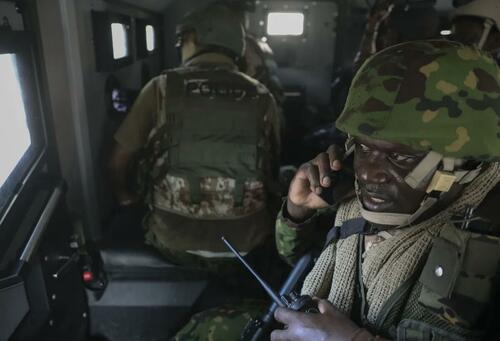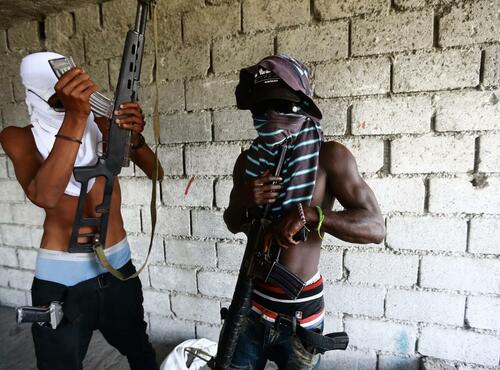Central American Troops Descend On Haiti To Quash Chaos
In a significant boost to Haiti’s efforts to combat escalating gang violence, approximately 150 military police officers from Central America have been deployed to aid the beleaguered Caribbean nation. This development marks a crucial step in the international community’s ongoing efforts to restore stability and order in Haiti, where daily life has been severely disrupted by criminal gangs, AP reports.
The recent deployment included around 75 security officers from Guatemala, who arrived on Saturday at the Toussaint Louverture International Airport. They were welcomed by Godfrey Otunge, the Kenyan commander of the U.N.-backed mission tasked with stabilizing the country. The mission, struggling for months amid worsening conditions, sees this reinforcement as a pivotal moment in their operations.
“The gangs have only two choices: surrender, lay down their weapons, and face justice, or face us in the field,” said Otunge at an airport ceremony in Port-au-Prince. “With the addition of the Guatemalan and El Salvador forces, the gangs will have nowhere to hide. We will root them out of their enclave.”
A similarly sized contingent from El Salvador arrived a day earlier aboard a U.S. Air Force aircraft, greeted by top Haitian officials and U.S. Ambassador Dennis Hankins. This collaborative international effort underscores the severity of the situation in Haiti, where gangs are estimated to control about 85% of the capital, Port-au-Prince.
The urgency of the situation was highlighted by a shocking incident on Christmas Eve, when gunmen attacked a crowd gathered for the reopening of Haiti’s largest public hospital, previously closed due to gang rampage. The attack resulted in the deaths of two journalists and a police officer, signaling a distressing escalation in gang boldness and violence.

Since the assassination of President Jovenel Moïse in 2021, coordinated gang attacks have increased, targeting prisons, police stations, and even the main international airport.
Mass murder is frequently used to punish neighborhoods accused of undermining a gang — as was the case with an October massacre that killed at least 70 people, including women and children, in Pont-Sondé, 60 miles north of Port-au-Prince. More than 700,000 Haitians have fled their homes, and half live in hunger as gangs control ports and thwart food and fuel distribution.
Prior to this week’s reinforcements, the international mission comprised approximately 400 security officers predominantly from Kenya, with additional pledges of personnel from nations including the Bahamas, Bangladesh, Barbados, Benin, and Chad.
Meanwhile in December, a Haitian warlord ordered the massacre of 184 mostly elderly residents, who were slashed, hacked, or shot to death, according to the Haitian Times.
In a statement issued via Facebook, Haiti’s feeble government said “A red line has been crossed, and the state will mobilize all its forces to track down and eliminate these criminals. Justice will strike with exemplary rigor.”
Given Haiti’s police forces have been plagued by mass desertions amid the country’s deep descent into chaos, that promise rings hollow to say the least. “These latest killings bring the death toll in Haiti this year to a staggering number of 5,000,” said UN High Commissioner for Human Rights Volker Turk last month.
Tyler Durden
Mon, 01/06/2025 – 05:45

